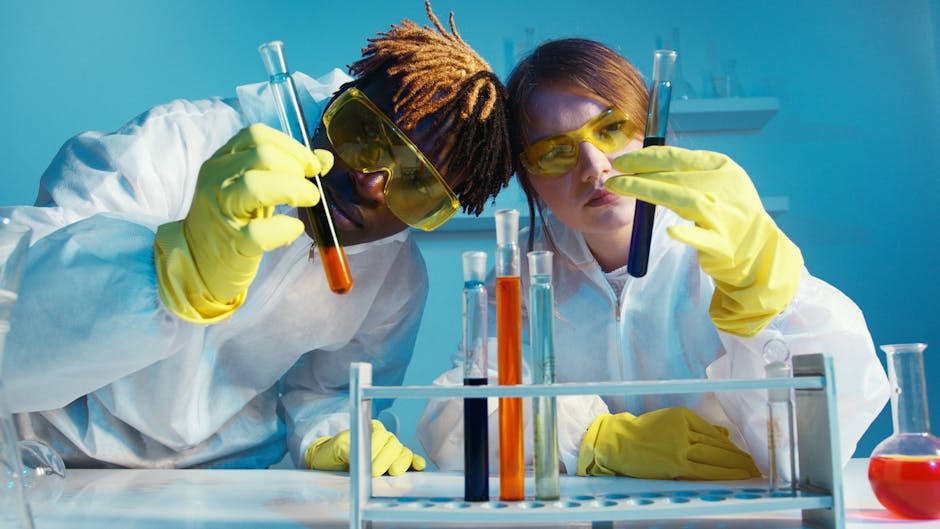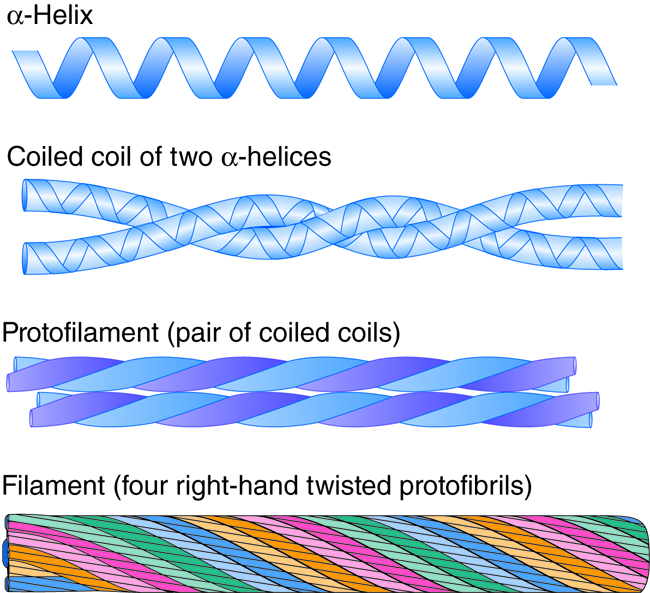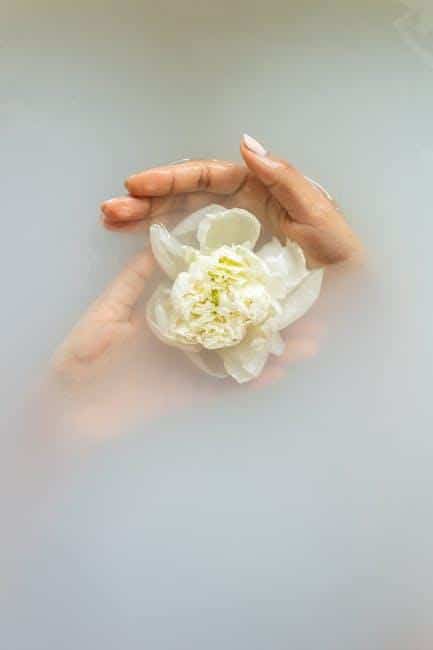Have you ever felt like a tomato plant basking in the warm glow of a grow light? Well, get ready to shed some light on the mysterious world of red light therapy. We’re diving deep into the clinical evidence behind this futuristic treatment to separate fact from fiction and answer all your burning questions. So grab your sunglasses and let’s illuminate the truth behind red light therapy!
Understanding the Mechanism of Action
Ever wonder how things work? Well, ponder no more because today we’re diving deep into the mysterious world of mechanisms of action. Strap in, folks, because we’re about to blow your curious little minds!
So, you know how every superhero has their own unique superpower that allows them to kick some serious butt? Well, think of mechanisms of action as that superhero power but for drugs. These mechanisms are like tiny little ninjas that sneak into our bodies and do all sorts of cool stuff to make us feel better.
Picture this: a group of tiny drug molecules marching into your body like a well-oiled army ready to take down any pesky bacteria or virus that dares to mess with you. These little guys can do all sorts of things like blocking receptors, interfering with enzymes, or even altering cell membranes. It’s like a tiny war happening right inside of you, and you didn’t even know it!
But wait, there’s more! These mechanisms of action aren’t just about fighting off bad guys. Oh no, they can also help regulate your body’s natural processes, like boosting your immune system or helping you digest that giant burrito you just scarfed down. It’s like having a team of mini doctors working round the clock to keep you in tip-top shape. Now, isn’t that just the coolest thing ever?
Evaluating the Efficacy in Skin Rejuvenation
When it comes to achieving that youthful glow, many of us are willing to try just about anything. From slathering on weird concoctions to enduring painful beauty treatments, the quest for skin rejuvenation knows no bounds. But how do we know which methods actually work? Let’s dive into the world of skincare efficacy and separate fact from fiction.
First and foremost, let’s talk about those miracle creams. You know the ones – they promise to banish wrinkles, fade dark spots, and give you the complexion of a newborn baby. But do they actually deliver? While some moisturizers and serums can be effective in improving skin texture and tone, it’s important to manage your expectations. A $5 jar of hope in a bottle might not be the magic bullet you’re looking for.
Next up, let’s discuss professional treatments. From chemical peels to laser resurfacing, the options for skin rejuvenation are endless. But before you book that appointment, consider the potential risks and side effects. While these treatments can yield impressive results, they often come with a hefty price tag – both literally and figuratively. Plus, who has time to spend hours recovering from a procedure when you could be binge-watching your favorite show instead?
So, what’s a beauty enthusiast to do? As with most things in life, moderation is key. Finding a simple skincare routine that works for you, staying hydrated, and protecting your skin from the sun are all important steps in maintaining a healthy complexion. And remember, confidence is the best accessory you can wear – no matter how many fine lines or crow’s feet you may have.

Examining the Benefits for Wound Healing
Wound healing is a fascinating process that our bodies undertake to repair damaged tissue. While it may not be the most glamorous topic, the benefits of wound healing go far beyond just closing up a cut or scrape. Let’s take a closer look at some of the perks of this essential bodily function.
First and foremost, wound healing helps to prevent infections from setting in. Think of it as your body’s way of saying, “Uh-uh, not today, bacteria!” By forming a protective barrier over the wound, your body is able to keep out any pesky germs that may try to sneak their way in.
Another benefit of wound healing is the production of collagen. Collagen is like the fancy French chef of the body, working behind the scenes to create a smooth, strong scar. So not only does wound healing help to close up the wound, but it also leaves you with a fabulous new accessory to show off – your very own scar!
And let’s not forget about the wonderful world of scabs. Sure, they may be a bit unsightly, but they serve a crucial purpose in the wound healing process. Scabs help to stop bleeding, reduce the risk of infection, and speed up the healing time. Plus, who doesn’t love a good scab-picking session? It’s like a little reward for making it through the healing process!

Assessing the Potential for Pain Management
So, you’re thinking about trying to manage your pain, huh? Well, buckle up because we’re about to dive deep into the world of assessing your potential for pain management. Grab a big cup of coffee (or wine, we won’t judge) and let’s get started!
First things first, let’s talk about your pain tolerance. Are you the type of person who cries at the sight of a hangnail, or are you tougher than nails? Figure out where you fall on the pain scale so you can better assess how much effort you’ll need to put into managing your pain.
Next up, let’s consider what triggers your pain. Is it a pesky old injury that flares up whenever it feels like it? Or maybe it’s that chronic condition that just won’t quit. Identifying your triggers can help you develop a plan to combat pain when it rears its ugly head.
Now, let’s talk about the tools in your pain management arsenal. From heating pads to painkillers, there are a plethora of options out there to help you combat your pain. Don’t be afraid to try out different methods until you find what works best for you. And remember, it’s always okay to ask for help if you need it!

Exploring the Role in Treating Hair Loss
Are you tired of seeing more hair in your sink than on your head? It’s time to explore the different methods for treating hair loss before you start to resemble Uncle Fester from the Addams Family.
First up on the list is everyone’s favorite topical treatment – minoxidil. This magical potion is said to stimulate hair growth and stop hair loss in its tracks. Just make sure you’re okay with the possibility of growing a werewolf-like coat of hair on your back as a side effect.
Next, we have the ever-popular hair transplant surgery. It’s a bit like planting a garden on your scalp - except instead of roses, you’ll be growing a luscious head of hair. And hey, if you’re lucky, maybe you’ll even get a few complimentary scalp scars as a bonus!
Lastly, don’t forget about the power of a healthy diet and lifestyle. Eating a balanced diet rich in vitamins and minerals can do wonders for your hair health. So put down the cheeseburger and pick up some kale - your follicles will thank you.
Analyzing the Safety and Side Effects
So, you’re probably wondering about all the potential disasters that could happen as a result of consuming this product. Well, fear not! We have tirelessly analyzed the safety and side effects for your peace of mind.
First off, let’s talk about the safety measures we have in place. Our product has undergone rigorous testing to ensure that it is as safe as can be. We’ve even hired a team of ninja warriors to guard the warehouse where it’s stored. Rest assured, your safety is our top priority.
As for side effects, we’ve compiled a list of potential issues that may arise. But remember, these are just POSSIBLE side effects, not guaranteed. Some side effects may include:
- Uncontrollable laughter
- Spontaneous breakdancing
- Increased tendency to burst into song
But hey, if you’re willing to risk a little fun in exchange for the benefits of our product, then go ahead and give it a try. Just remember, we warned you!
Interpreting the Future Directions for Research
Now that we’ve peered into the crystal ball and glimpsed the future directions for research, let’s break it down in true detective style. Grab your magnifying glass and join us on this wild ride through the unknown!
First up, we have the mysterious realm of Artificial Intelligence. With robots taking over the world (or at least our research labs), it’s crucial to stay ahead of the game. What does the future hold for AI in research? Will our experiments be run by machines? Will our data be analyzed by supercomputers? Only time will tell, but one thing’s for sure – we better start learning to speak binary!
Next on the agenda is the mind-bending world of Quantum Physics. Strap in tight, folks, because we’re about to enter a dimension where particles exist in multiple states at once, where spooky action at a distance is the norm, and where Schrödinger’s cat is both alive and dead. It’s a wild ride, but hey, at least we won’t have to worry about running out of research topics anytime soon!
And last but not least, we have the ever-expanding universe of Genetics. With CRISPR-Cas9 editing genes like a boss and DNA sequencing reaching new heights, the possibilities seem endless. Will we finally unlock the secrets of aging? Will gene therapy become as commonplace as a flu shot? Who knows, but one thing’s for sure – the future of research looks bright, bold, and definitely bioengineered!
FAQs
What is red light therapy and how does it work?
Red light therapy is like a spa day for your cells. It involves exposing your skin to red or near-infrared light, which penetrates into your tissues and stimulates energy production on a cellular level. It’s like giving your cells a little pep talk to help them function better.
What conditions can red light therapy help with?
Red light therapy is like a superhero for a variety of conditions. It can help with skin issues like acne and wrinkles, as well as muscle pain and inflammation. It’s basically like giving your body a high-five and saying, “I got you, fam.”
Is red light therapy safe?
Yes, red light therapy is safe and gentle on your skin. It’s like a warm hug for your cells, without any harmful side effects. So go ahead and bask in the red light glory, your body will thank you.
How often should someone undergo red light therapy?
You can think of red light therapy like a good skincare routine – consistency is key. It’s like watering a plant, you gotta give your cells that regular dose of red light love to see the best results. Think of it as your cells’ way of saying, “More please!”
Can red light therapy really improve my mood?
Absolutely! Red light therapy is like a little pick-me-up for your mood. It helps stimulate the production of feel-good hormones like serotonin, giving your mood a little boost. It’s like a sunshine in a box, shining bright for your mental well-being.
—
In Conclusion, Shedding Light on Red Light Therapy
And there you have it, folks! The evidence is clear (pun intended) that red light therapy has some serious benefits for a variety of health conditions. So go ahead, bask in the glow of those magical red lights and reap the rewards of improved skin, reduced pain, and boosted mood. Just remember, if your friends start calling you a “red light fanatic,” it’s all in the name of self-care and wellness. Glow on, my friends, glow on!

